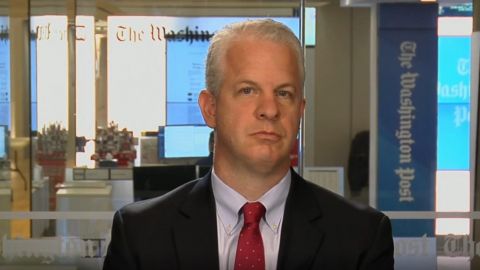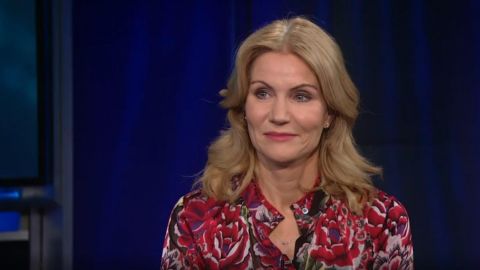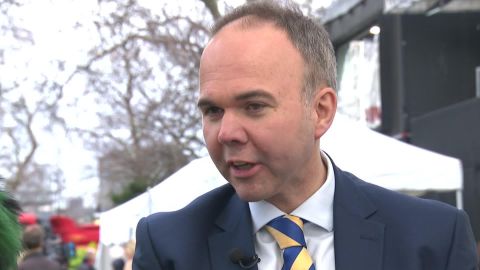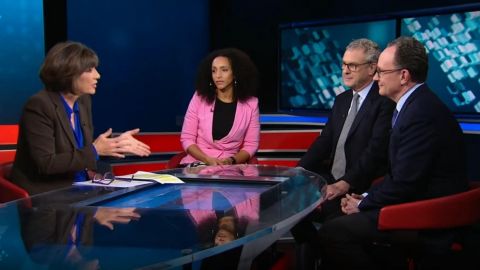Read Transcript EXPAND
CHRISTIANE AMANPOUR: So you used to work for Theresa May.
GAVIN BARWELL, FORMER CHIEF OF STAFF OF THERESA MAY: I did.
AMANPOUR: And so what is your reaction? She couldn’t get a deal through. She couldn’t get a majority. But now we have a massive Conservative majority.
BARWELL: So, I’m obviously pleased. I didn’t want Jeremy Corbyn to become prime minister this country. I think it’s really important for politics in the U.K. that his extreme, and the anti-Semitism we have seen infect our politics has been rejected so comprehensively. And I want the Brexit deal to go through. Boris’ deal is — about 90 percent of it is what Theresa negotiated. So he’s now got a clear mandate to get that deal through and finally to get us over this gridlock that has infected our politics for two or three years.
AMANPOUR: So let’s just talk, because it did seem from an outsider’s view that Theresa May did a lot of this. As you say, it’s 90 percent of her deal that he got with the E.U. And they kind of offered her this deal. And it was Boris Johnson and his hard-line wing of the Conservative Party that rejected it when she had it.
BARWELL: So, I think a combination of two groups. It’s really interesting that you had some people on the rise of the Conservative Party who wanted a harder Brexit and rejected it. And they thought, if they rejected it, they would get what they want. And you had some other people that basically wanted to stop Brexit, wanted to have a second referendum. And they thought, if they rejected it, they’d get what they want. And at the time, we said to both of them, one of you must be wrong. And we now know from the election result which country it was that was wrong, the people that wanted a second referendum. If they had compromised, they would have got a sort of softer Brexit, if you like, than the version that they now going to get.
AMANPOUR: So what do you think they are now going to get? Are you happy with this particular withdrawal deal?
BARWELL: So, I don’t think it’s perfect, from my point of view. There are two things really that he’s changed that worry me. One is the Northern Ireland protocol, where, essentially, I think you are going to have some kinds of checks when goods are moving between Great Britain and Northern Ireland within the United Kingdom, which is not good for our…
(CROSSTALK)
AMANPOUR: You’re talking about a border down the Irish Sea.
BARWELL: Yes. Essentially, yes. And…
AMANPOUR: Which he hasn’t been particularly truthful about. He keeps saying it’s going to happen, then it’s not going to happen.
(CROSSTALK)
BARWELL: The truth is, actually, the deal he’s negotiated says a lot of this is going to be sorted out down the line, so you can’t answer that question with certainty at the moment. But it seems to me there’s going to at least be some checks, now, which — now, that worries me as a Unionist. The second thing is about how close you want the future relationship to be after you have left the E.U. And he is envisaging the kind of relationship that Canada would have with the European Union. And, personally, I would like something a little bit closer than that. That’s what Theresa’s deal envisaged. But, look, he — let’s give the guy credit. He’s just won a huge victory. He has a mandate now to pursue his deal. We are going to leave on the 31st of January now. And then we’re going to get onto the debate about exactly what that future relationship is. And we will see how that plays out.
About This Episode EXPAND
A comprehensive analysis of the U.K. election and Brexit, with input from Mark Landler, Afua Hirsch, Simon Fraser, Gavin Barwell and Helle Thorning-Schmidt. Plus, Craig Whitlock discusses his investigation into the war in Afghanistan for the Washington Post.
LEARN MORE



